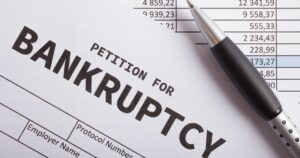Will bankruptcy save your home from foreclosure? Most homeowners facing bankruptcy are worried about one thing — the family home. Are you significantly behind on mortgage payments and struggling to meet debt obligations? If your mortgage lender is threatening to foreclose, bankruptcy might be your only option.
With the protections of bankruptcy, you could prevent creditors from filing official judgments in court. You could also cease wage garnishments, among other things. Bankruptcy is a powerful tool available to consumers, but will it save your home from foreclosure? It depends on your situation and the type of bankruptcy you intend to file.
Bankruptcy Offers Protections from Mortgage Lender Foreclosures
Bankruptcy is a federal, not state, process. Therefore, the protections offered through bankruptcy are the same regardless of which state you call home. When you file for bankruptcy, you are granted protection from all creditors, including your mortgage lender. So, if you cannot pay your mortgage, or if you failed at a loan modification, the lender will be hard-pressed to file for foreclosure once you have bankruptcy protections in place.
The Power of an Automatic Stay
Once your attorney files your bankruptcy petition, all collections from creditors, including mortgage, must cease. This is a federal court order known as the automatic stay. The companies you owe may not send letters and calls for payments, and they cannot take legal action against you – this includes foreclose, eviction, lawsuits, levying bank accounts, or garnishing wages.
The Limitations of the Automatic Stay
While the automatic stay is powerful, it does have its limitations. If you wait to file for bankruptcy at the last minute, or after your lender has already started the foreclosure process, it may complicate matters further. Also, if you wait too long, you may need to file a different type of bankruptcy to unlock protections from creditors already filing liens and court actions against you.
Chapter 7 and Chapter 13 Bankruptcy
As a consumer, you have the option of filing for Chapter 7 or Chapter 13 bankruptcy.
- Chapter 7 – Chapter 7 is the liquidation bankruptcy, but not all consumers qualify for Chapter 7. Chapter 7 requires you to have a maximum income threshold based on the median of your city.
- Chapter 13 – Chapter 13 is not liquidation; instead of dismissing your obligations, you are creating a payment plan that distributes payments to debts through the court.
Chapter 13 offers homeowners more protections for their homes than Chapter 7. For example, with Chapter 13, your attorney may be able to request a lien strip, which can force a lender to remove any lien and lump the sum of your home loan into a group of unsecured loans for which you are creating a payment plan. However, the property value of your home must be less than what you owe the mortgage holder.
Save Your Home and Explore Your Options – Speak with a Bankruptcy Attorney
Facing foreclosure can be frightening. To explore your options, contact Gravis Law today for a no-obligation consultation.

